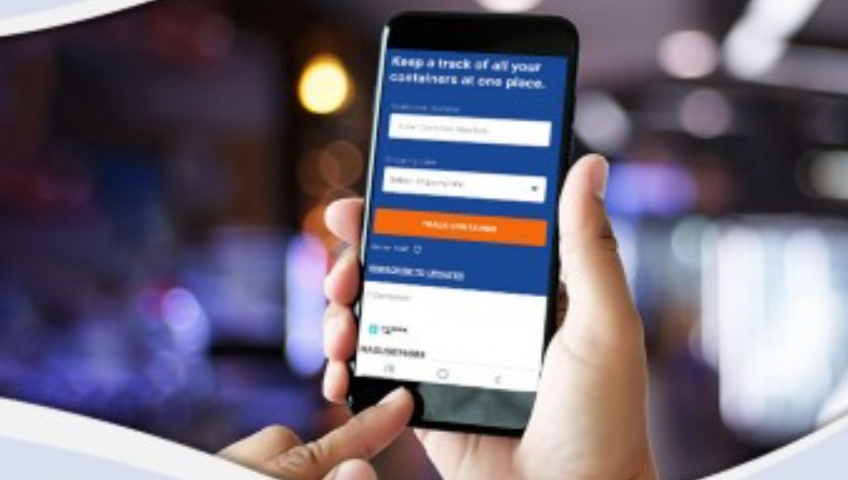1. Introduction to Cargo Tracking
Cargo tracking is a crucial aspect of modern logistics, enabling businesses and individuals to monitor the status and location of their shipments in real-time. Whether you’re shipping goods domestically or internationally, understanding how to track your cargo can prevent delays, reduce losses, and ensure timely delivery. This guide will walk you through everything you need to know about cargo tracking, from the basics to advanced systems and future trends.
2. Understanding Cargo Tracking
Cargo tracking involves the use of various technologies and systems to monitor the movement of goods from the point of origin to the final destination. This process provides real-time updates on the location and status of shipments, allowing shippers and recipients to manage logistics more efficiently. The tracking process typically starts once the cargo is picked up and continues until it is delivered.
3. Types of Cargo Tracking Technologies
There are several technologies used in cargo tracking, each offering different levels of accuracy and detail:
- GPS Tracking: Utilizes satellites to provide real-time location data.
- RFID Tracking: Employs radio frequency identification to track cargo via tags attached to goods.
- Barcode Tracking: Involves scanning barcodes on shipments to record and update their status.
- Satellite Tracking: Provides global coverage, often used for tracking across remote or vast areas.
4. Methods of Tracking Cargo
You can track your cargo using various methods, including:
- Online Cargo Tracking Portals: Provided by shipping companies to track shipments using tracking numbers.
- Mobile Apps for Cargo Tracking: Many logistics companies offer apps that allow you to monitor your shipments on the go.
- Email and SMS Notifications: Receive updates directly via email or text.
- Phone Support and Customer Service: Contact the carrier for assistance if online tracking fails.
5. Steps to Track Your Cargo
To track your cargo effectively, follow these steps:
- 5.1 Obtaining the Tracking Number: This is usually provided at the time of shipment booking.
- 5.2 Using Online Portals or Apps: Enter the tracking number into the provided field.
- 5.3 Understanding Status Updates: Learn how to interpret common tracking statuses.
- 5.4 Contacting the Carrier for Assistance: If there are issues, reach out to customer support.
6. Common Terms in Cargo Tracking
Understanding common cargo tracking terms can help you better manage your shipments:
- Tracking Number: A unique identifier assigned to your shipment.
- Bill of Lading: A legal document detailing the type, quantity, and destination of the goods.
- Estimated Time of Arrival (ETA): The expected delivery time.
- Proof of Delivery (POD): A document confirming the recipient has received the goods.
7. Benefits of Tracking Your Cargo
Tracking your cargo offers several advantages:
- Increased Security: Monitor your shipment to prevent theft or loss.
- Real-Time Updates: Get instant notifications on the status of your cargo.
- Enhanced Customer Satisfaction: Ensure timely deliveries to meet customer expectations.
- Improved Supply Chain Efficiency: Optimize logistics by tracking shipments.
8. Challenges in Cargo Tracking
Despite its benefits, cargo tracking also presents challenges:
- Inaccurate or Delayed Updates: Sometimes, the tracking data may not be updated in real-time.
- Technical Issues: System glitches can lead to incorrect information.
- Cross-Border Tracking Complications: Tracking international shipments can be more complex due to varying regulations.
- High Costs for Advanced Tracking Solutions: Sophisticated systems may be expensive.
9. Choosing a Cargo Tracking System
When selecting a cargo tracking system, consider the following:
- Key Features to Look For: Real-time updates, global coverage, user-friendly interface.
- Cost Considerations: Balance between cost and features.
- Compatibility with Current Systems: Ensure the new system integrates well with existing logistics tools.
- Reviews and Reputation of Tracking Services: Look for reliable and well-reviewed service providers.
10. Cargo Tracking for Different Industries
Different industries have specific tracking needs:
- E-commerce: Requires fast and reliable tracking to ensure customer satisfaction.
- Manufacturing: Focuses on tracking large volumes of goods efficiently.
- Pharmaceuticals: Needs precise tracking to maintain the integrity of sensitive products.
- Automotive: Involves tracking high-value items with stringent security requirements.
11. Future of Cargo Tracking
The future of cargo tracking is promising, with several innovations on the horizon:
- Innovations in Tracking Technologies: New technologies like blockchain are being integrated to enhance transparency.
- Integration with AI and IoT: Artificial intelligence and the Internet of Things are being used to predict delays and optimize routes.
- Environmental Impact and Sustainability: Future tracking systems may focus on reducing the carbon footprint of logistics.
12. Legal and Regulatory Aspects of Cargo Tracking
Tracking cargo involves adhering to various legal and regulatory requirements:
- Compliance with International Shipping Laws: Ensure your tracking practices comply with global regulations.
- Data Privacy and Security: Protect the data collected during tracking.
- Impact of Trade Agreements on Tracking: Understand how trade agreements affect cross-border tracking.
13. Case Studies on Successful Cargo Tracking Implementations
Learning from successful implementations can provide valuable insights:
- Case Study 1: E-commerce Giant: A major online retailer optimizes its logistics through advanced tracking.
- Case Study 2: Pharmaceutical Company: A pharmaceutical firm uses tracking to ensure product safety.
- Case Study 3: Global Manufacturer: A manufacturing company enhances supply chain efficiency with a robust tracking system.
14. FAQs on Cargo Tracking
- What should I do if I lose my tracking number? Contact the shipper or carrier for assistance.
- How accurate are cargo tracking systems? Accuracy varies but is generally reliable, especially with advanced systems.
- Can I track international shipments? Yes, but it may involve multiple tracking systems.
- What happens if my cargo is delayed? Check the latest status update and contact the carrier if necessary.
- How do I resolve tracking discrepancies? Report any issues to the carrier or shipper.
- Are there any free cargo tracking options? Many carriers offer free tracking through their websites or apps.
15. Conclusion
Cargo tracking is an essential tool for anyone involved in shipping goods, whether for personal or business purposes. By understanding the available technologies and methods, you can ensure your shipments arrive on time and in good condition. Staying informed about the latest trends and challenges in cargo tracking will also help you adapt to future changes in the logistics industry.





